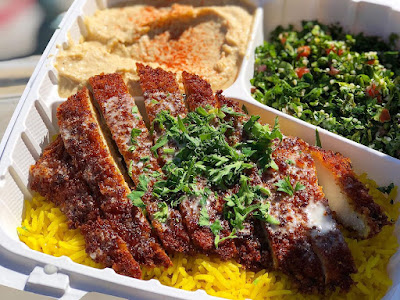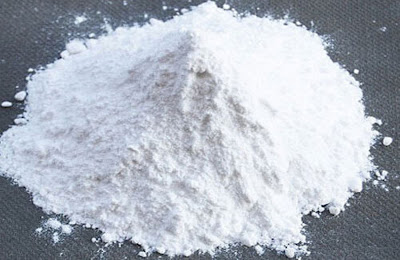The Growing Importance of Halal Certification in Global Halal Food Trade
 |
| Halal Food |
What is Halal Food?
Halal food refers to food products that Muslims are allowed to consume
according to Islamic dietary laws. Halal is an Arabic word meaning permissible
or lawful. For food to be considered halal, the food item must be clean,
healthy and nutritious. It must not contain any component that Muslims are
prohibited from consuming according to Sharia law.
Halal Food Preparation Standards
There are specific standards that must be followed in order to prepare and
process halal food. Animals slaughtered for halal meat production must be alive
and healthy at the time of slaughter. The animal must be slaughtered by a
Muslim individual who recites a prayer asking for Allah's blessings upon the
animal. The slaughter method, known as dhabihah or zabiha, requires a swift
blade to the throat that causes minimal suffering to the animal. Blood must be
drained from the carcass post-slaughter.
Halal
Food preparation standards also prohibit the use of alcohol in cooking
food or food items containing alcohol. Gelatin sourced from non-halal animals
is also not permitted. Cross-contamination with non-halal foods should be
avoided during preparation, processing, packaging and transportation. Food
facilities must maintain the highest standards of hygiene as prescribed in
Islamic law.
The Growing Demand for Halal Products
The global halal food market has been rapidly expanding in response to the
growing Muslim population worldwide. There are currently over 1.8 billion
Muslims around the world comprising 24% of the global population. The demand
for halal certified goods is also on the rise among non-Muslim consumers who
are increasingly health-conscious. Compliance with halal regulations ensures
humane methods of production free from contamination and use of illicit
components.
The Organisation of Islamic Cooperation (OIC) estimates Muslim-majority
countries spend around $1.3 trillion annually on food imports, much of which is
targeted towards halal products. Non-OIC countries like United States, United
Kingdom and China have sizable Muslim minorities and emerging markets for halal
trade. Industry experts project the halal food sector to reach $1.9 trillion
globally by 2023, making halal food certification a necessity for international
food businesses seeking to tap into this lucrative demand.
Role of Certification Bodies
To facilitate halal trade, certification bodies inspect and audit food
businesses to ensure compliance with prescribed halal standards. Some of the
prominent international halal certification organizations include Malaysian
halal Standards (MS1500), Indonesian Ulama Council (MUI) and Halal Food
Authority (HFA).
Process documentation, facility audits and facility design assessments are
critical aspects of the halal certification process. Designated inspectors
monitor compliance during production and validate chain of custody protocols.
Ongoing surveillance, surveillance audits, random sampling and testing help
identify potential issues. Certificates issued on successful audits give Muslim
consumers assurance of permissible ingredients and manufacturing practices.
Transitioning to Halal Production
Undertaking halal certification requires significant effort and adjustments for
conventional food companies. Procedures have to be modified to avoid
cross-contamination and meet segregation and hygiene standards. Parallel halal
and non-halal production lines may be required. Staff training is important to
inculcate an understanding of Sharia principles pertaining to food.
Traceability systems need to be strengthened to demonstrate sourcing of halal
approved raw materials. Documentation needs to fulfill reporting prerequisites
of regulators.
Companies opting for halal certification gain access to new export markets and
Muslim consumers within their domestic nation. However, certification costs and
production changes pose initial challenges, even as long term benefits of
reaching new customer segments outweigh short term investments. A gradual,
phased transition integrating halal practices alongside other quality systems
is recommended for a sustainable compliance model valuable to both businesses
and consumers.
Niche Opportunities in the Halal Sector
within the broader halal economy, niche segments centered around modest
fashion, halal cosmetics, Islamic finance and family travel have also
flourished. For food businesses, opportunities lie in personalized halal
products catering to lifestyle and dietary trends.
Demand is growing for clean label, organic and vegan halal foods appealing to
health-conscious demographics. Prepared meals, snacks on-the-go and children's
halal food products are other areas of interest. Given rising affluence,
experiential halal tourism linking travel and cuisine holds promise. Technologies
enabling traceability, logistics optimization and platform-driven trade could
help smaller halal entrepreneurs access new opportunities.
Undoubtedly, adhering to halal assurance presents unique challenges but also
opens avenues to participate in the Islamic market economy. With conscientious
strategies and best practices, both Islamic and mainstream businesses stand to
mutually benefit in the future of sustainable halal certification and commerce.
Ultimately, upholding dietary ethics and community welfare through halal
oversight ensures wholesome nourishment for all humanity respecting religious
and cultural diversity.
Get More Insights on Halal Food



Comments
Post a Comment